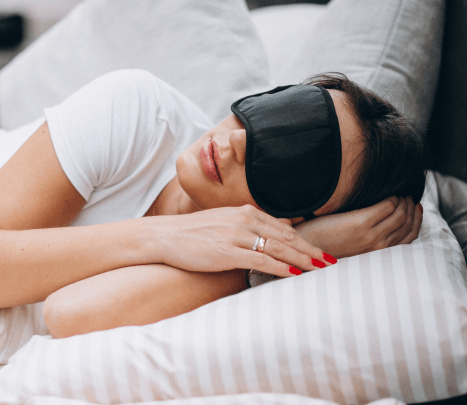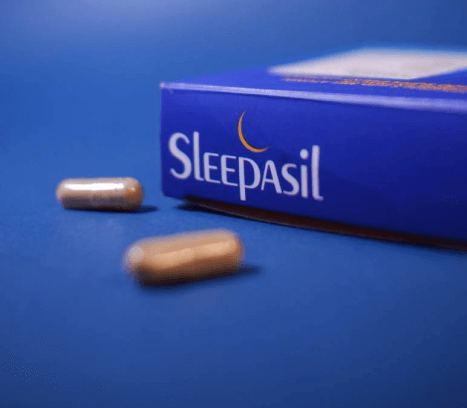
We all get sleepless nights every now and then, and for various reasons, these can turn into a nightmare if neglected. Sleep deprivation, when prolonged, can be detrimental to health and overall quality of life since lack of healthy sleep hygiene can cause serious illness, reduced focus, and may even lead to injury. Thankfully, building a good sleep routine doesn’t always have to be expensive although it may require conscientious effort on your end. Some people ease into it by making lifestyle changes such as doing light exercises, taking a shower before bed, making the bedroom more conducive to rest, and drinking calming teas to help relax. With that being said, it’s also perfectly okay to seek help from sleep aids to achieve better sleep. In fact, there are various types of oral medications to help manage levels of sleep deprivation, from general sleeplessness to severe insomnia.
The Sleep Foundation categorizes sleep medications into three broad categories: dietary supplements, over-the-counter medications, and prescription drugs. Ahead, we explain the difference between these types as a crash course on your options so that you know what questions to ask your doctor.
DIETARY SLEEP SUPPLEMENTS
Our health and wellness market is replete with various food supplements and these include sleep aids. While you can find several brands in drugstores, many of them are also sold online, in supermarkets, and through direct selling companies, and they are usually sold without the need for a prescription. In the USA, dietary supplements are classified by the FDA as food, and such is the case in the Philippines. According to FDA AO 2014-0029, products that are processed to supplement the diet are essentially classified as food and are regulated prior distribution for safety to ensure the safety of the public.
One of the most common sleep aids in the market are melatonin supplements which are formulated to help people sleep faster and better. Our pineal gland naturally releases melatonin and this hormone regulates our sleep-wake cycle such that our body knows when to wake up and when it’s time to sleep. However, some people experience lowered levels of melatonin due to a variety of factors including but not limited to shift work, jet lag, and at times stress.
Some melatonin supplements come in pure form, while there are melatonin sleep aids that include other ingredients like valerian root and chamomile in the formulation. Valerian root is a medicinal herb that is known for its ability to alleviate anxiety, while chamomile is known for its calming effect and is often used in oral supplements and teas.

Assuming they are FDA-approved, Melatonin supplements are generally safe to take by adults and non-pregnant people. However, it is worth noting that side effects may still vary from one person to another. Adapting to Melatonin supplements may initially cause sleepiness and headache, and while it’s unlikely to develop a dependency on melatonin, it is best to consult a doctor if you wish to incorporate Melatonin supplements into treatment for chronic insomnia.
DIETARY SLEEP SUPPLEMENTS
Just like dietary supplements, over-the-counter sleep aids may be purchased at drugstores, supermarkets, and online stores without a prescription. OTC sleep aids are also regulated by the FDA to qualify among other things the safety and efficacy of any active ingredients used before they are allowed to be sold to the public.

An FDA-approved antihistamine, diphenhydramine is known for its
sedative properties which can help with short-term insomnia. It is also given to patients who have coughs and colds so they can avoid waking at night or to people who suffer from allergic reactions like hives.
According to NHS UK, while adults can take diphenhydramine to counter sleeplessness, it may cause dizziness, grogginess, and dryness of the mouth. Moreover, regular intake of diphenhydramine can cause nausea and may also lead to dependence so it’s strongly recommended that people consult with their doctor in case they require long-term treatments for insomnia.
PRESCRIPTION SLEEPING PILLS
Depending on the severity of a sleep disorder, doctors may instruct patients to take prescription medication for a limited period to help them sleep. Sleeping pills are often formulated with a high concentration of ingredients that can induce sleep and may only be purchased with a prescription at licensed pharmacies and drugstores. Furthermore, sleeping pills are strictly regulated and monitored by the FDA because they are classified as drugs. Among the most common types of prescription drugs given to patients with severe sleeping problems include antidepressants and hypnotics. Antidepressants can have off-label benefits like inhibiting serotonin uptake which may be helpful to patients who have difficulty falling asleep due to depression.
CHOOSING THE RIGHT
SLEEP AID FOR YOU
Regardless of the severity of your sleep deprivation, it is always best to consult with a doctor to help you understand your condition even better and to learn about how treatment options may impact your current state of health.
If you’re experiencing difficulty in sleeping and are new to the sleep aid territory, you can consider taking melatonin sleep supplements; for your peace of mind make sure that you are
buying FDA-approved products through authorized channels. Keep in mind that supplements are meant to fill nutrition gaps; sustaining a healthy lifestyle is still important to truly enjoy their benefits. It also helps to manage your expectations before you take any sleep aids. Do your own research before you make a purchase; take the time to read reviews, engage withnon-prescription brands on social media if you have questions about their product, and read up on literature especially the ones focused on side effects.